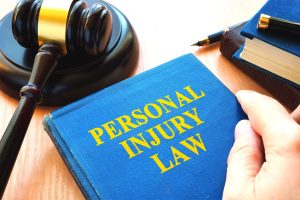One of the first questions people start asking after a serious accident is, “Do I have a personal injury case?”
Weighing both the viability and value of a potential case is important when considering how to proceed. But you’re going to have a tough time answering that question without first talking to a Florida injury lawyer. Even if you have a basic sense of what negligence is and the fact that you were hurt by someone else’s failure to use care, other details can stop a case before it starts.
For instance, if the other driver is negligent but does not have insurance and you don’t have uninsured motorist coverage, you may not have a personal injury case. If you’re in an accident and the other driver was at-fault but your injuries were not serious and permanent, you may have to rely solely on your own personal injury protection coverage (PIP) because your case doesn’t meet the serious injury threshold for filing a Broward personal injury lawsuit, as outlined in F.S. 627.737.
We’ve also seen situations where an injured person erroneously assumes they don’t have grounds for a case because they were partially to blame. The fact is, comparative fault (fault that is shared by the injured person) won’t necessarily kill a case. Per F.S. 768.81, partially at-fault plaintiffs can still recover a portion of the damages from the other at-fault party, so long as their own blame isn’t greater than 50 percent. (In the legal world, we call this “modified comparative fault with a 51 percent bar.” Until a few months ago, we used to have a system of pure comparative fault, meaning you could collect on 1 percent of damages even if you were 99 percent at fault. Florida tort reform legislation that passed and went into effect March 2023 changed that.)
Don’t Rely on Guesswork to Decide If You’ve Got Grounds for an Injury Case
These kinds of scenarios are why it’s important for people who aren’t injury lawyers to make presumptions about whether they’ve got a case.
Fortunately, there’s no reason to rely on guesswork because the vast majority of Broward injury lawyers offer free initial consultations to help you answer this fundamental question. We’ll look carefully at the facts you’ve gathered so far, determine what gaps need to be filled in, identify potential defendants, provide a rough estimate of how much value your case may have, and give a general timeline/breakdown of the process.
But how do you know if the attorney is a straightshooter and not just telling you that you have a legitimate injury case to make money? Because, as any Broward injury lawyer can tell you, there’s rarely money to be made on a weak case.
Civil injury case attorneys are paid on a contingency fee basis. In Florida civil injury cases, plaintiff attorneys (those working for the person injured) don’t get paid unless you win your case. As noted by The Florida Bar, the attorney agrees to accept part of the money recovered as the fee for their services. The exact amount depends on the complexity of the case and your timeline, but the percentage is usually somewhere around 20-30 percent. Because there is no attorney’s fee paid unless we win, there’s no conflict of interest when providing an assessment of the viability of a case to a prospective plaintiff.
What Elements are Needed to Win a Broward Personal Injury Case?
As noted by the American Bar Association, one might have grounds for a personal injury case if the injuries that were sustained were the result of negligence by the other party. In layman’s terms, negligence means someone had a responsibility to use a degree of care, they failed to exercise that level of care, and the result was physical injuries that led to financial damages.
Some examples of potentially viable personal injury cases in Florida:
- A car accident caused by a drunk or distracted driver.
- Physical assault at a nightclub where security was sorely lacking.
- Falling down in a commercial parking lot with non-obvious tripping hazards.
- Negligently delayed medical diagnosis of a serious condition that led to a worse prognosis than if it had been caught sooner.
The vast majority of personal injury cases are rooted in negligence, though there are a few outliers. For example, injuries from incidents like dog bites or defective consumer products may be based on a theory of strict liability. In those cases, it’s not necessary to prove an absence of care. Strict liability focuses on impact rather than intent.
If you have questions about whether you have grounds to file a Fort Lauderdale personal injury lawsuit, we can help.
Call Fort Lauderdale Injury Attorney Richard Ansara at (954) 761-4011. Serving Broward, Miami-Dade and Palm Beach counties.
Additional Resources:
LEGISLATURE PASSES COMPREHENSIVE TORT LEGISLATION, March 24, 2023, By Mark D. Killian, Florida Bar Association
More Blog Entries:
Florida Personal Injury Plaintiffs Now Face New Comparative Fault Standard, April 10, 2023, Fort Lauderdale Personal Injury Lawyer Blog
 Broward Injury Lawyer Blog
Broward Injury Lawyer Blog



